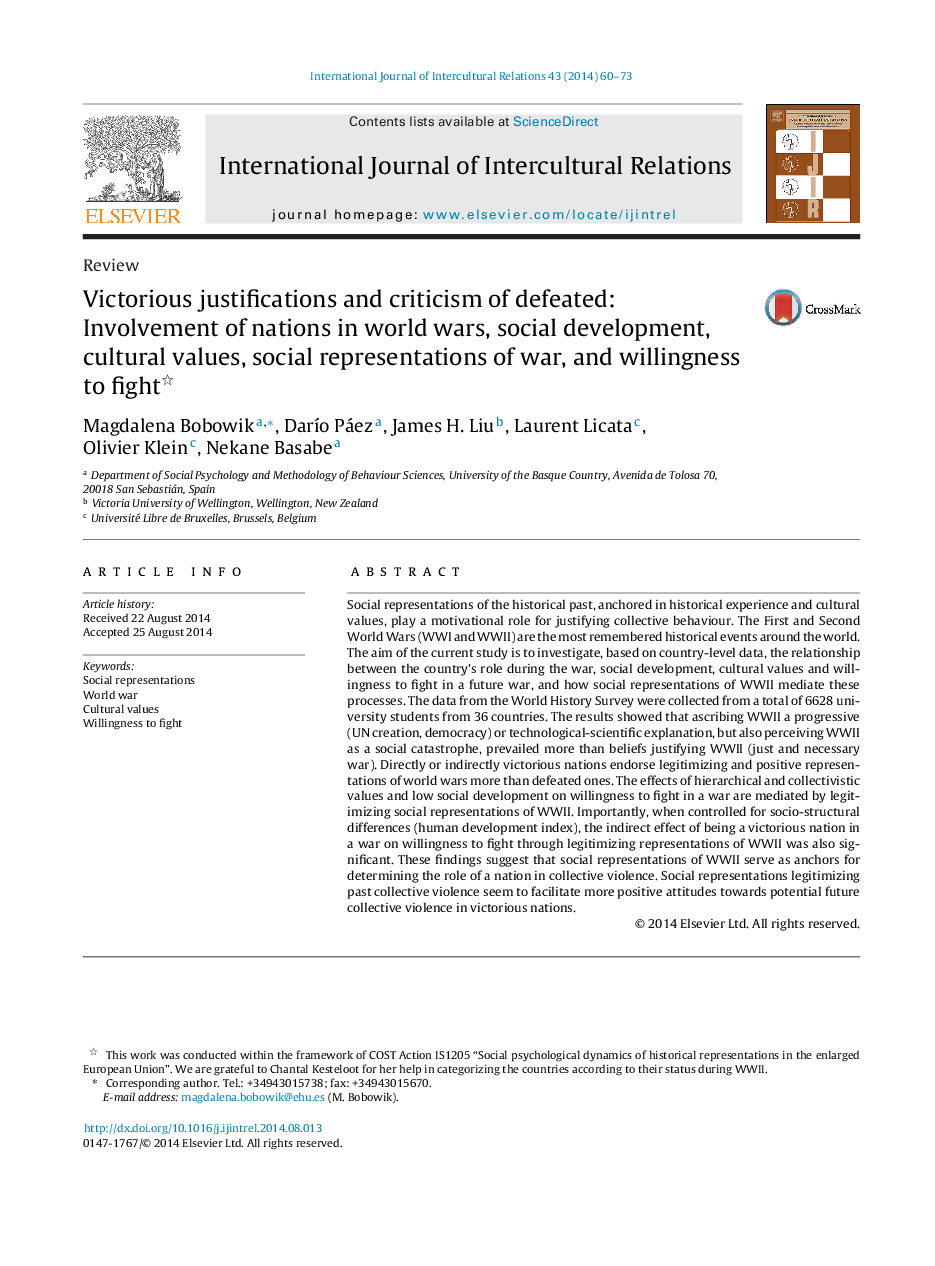| کد مقاله | کد نشریه | سال انتشار | مقاله انگلیسی | نسخه تمام متن |
|---|---|---|---|---|
| 947037 | 1475748 | 2014 | 14 صفحه PDF | دانلود رایگان |
Social representations of the historical past, anchored in historical experience and cultural values, play a motivational role for justifying collective behaviour. The First and Second World Wars (WWI and WWII) are the most remembered historical events around the world. The aim of the current study is to investigate, based on country-level data, the relationship between the country's role during the war, social development, cultural values and willingness to fight in a future war, and how social representations of WWII mediate these processes. The data from the World History Survey were collected from a total of 6628 university students from 36 countries. The results showed that ascribing WWII a progressive (UN creation, democracy) or technological-scientific explanation, but also perceiving WWII as a social catastrophe, prevailed more than beliefs justifying WWII (just and necessary war). Directly or indirectly victorious nations endorse legitimizing and positive representations of world wars more than defeated ones. The effects of hierarchical and collectivistic values and low social development on willingness to fight in a war are mediated by legitimizing social representations of WWII. Importantly, when controlled for socio-structural differences (human development index), the indirect effect of being a victorious nation in a war on willingness to fight through legitimizing representations of WWII was also significant. These findings suggest that social representations of WWII serve as anchors for determining the role of a nation in collective violence. Social representations legitimizing past collective violence seem to facilitate more positive attitudes towards potential future collective violence in victorious nations.
Journal: International Journal of Intercultural Relations - Volume 43, Part A, November 2014, Pages 60–73
